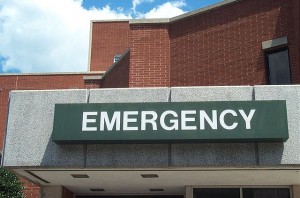 When it comes to security challenges in healthcare facilities EDs (Emergency Departments) are truly unique. There’s a diversity in not only the people that come in and out, but the services provided as well. Never mind the fact that EDs are open 24/7 and can’t deny treatment to anyone. This leads to a complicated dynamic that poses security risks to staff, patients, and guests. As a leading security systems provider in northern and central New Jersey, our team at Perfect Connections, Inc. is adept at assessing the security risks associated with different environments, including healthcare facilities. We’ll take you through some of the most common risks associated with EDs and how a comprehensive security system can help.
When it comes to security challenges in healthcare facilities EDs (Emergency Departments) are truly unique. There’s a diversity in not only the people that come in and out, but the services provided as well. Never mind the fact that EDs are open 24/7 and can’t deny treatment to anyone. This leads to a complicated dynamic that poses security risks to staff, patients, and guests. As a leading security systems provider in northern and central New Jersey, our team at Perfect Connections, Inc. is adept at assessing the security risks associated with different environments, including healthcare facilities. We’ll take you through some of the most common risks associated with EDs and how a comprehensive security system can help.
One of the most prominent threats to safety in EDs is the mentally unstable or violent patient (the two often go hand-in-hand). There have been numerous accounts of attacks, both physical and verbal, on medical workers across the nation. It’s no surprise either, according to the Bureau of Labor Statistics, RNs (Registered Nurses) alone face a 6.1 per 10,000 chance of being assaulted on the job. That’s triple the chances of an average American worker. As these assaults are typically unpredictable and unprovoked, how can a hospital be prepared? Some have employed security guards as an addition to systemic precautions. Others, like Dr. Melissa Barton of Detroit Sinai-Grace Hospital have pushed for security enhancements such as metal detectors as hospital entrances. Barton on hospital security, “It’s a balance between having patients and facilities and visitors feel welcome and that we want them to come and see their loved ones, versus also offering safety and a feeling of security for those same people.”
When you think of an ED, what comes to mind? It’s unlikely a peaceful and relaxed scene, right? You have any number of people coming in and out who are all dealing with an “emergency.” This can lead to high tensions, aggravated emotions, and stress. These feelings can escalate quickly especially when there is overcrowding which can lead to long wait times, further exacerbating the tumultuous atmosphere. When situations do escalate within an ED, they can quickly turn violent. Aside from high stress situations driving people to act out, there are other reasons why hospital violence occurs. Take for example a law in Kentucky designed to keep those who commit misdemeanor crimes out of jail in order to free up space for the more dangerous criminals. As a result Kentucky hospitals found themselves turning into a “dumping ground” for alcoholics and the disorderly, often homeless, which would have otherwise been imprisoned. This leads to higher security risks for intake staff and other patients waiting for treatment.
As previously mentioned public hospitals can’t typically refuse care to anyone, including convicted felons. This can pose a hazard to hospital security, its staff, and patients. These dangerous patients are sometimes referred to as a “forensic patient” or “prisoner patient.” A forensic patient is typically accompanied by a law enforcement individual, but there is still risk involved. These types of patients can attempt to escape by using force and they tend to have erratic behavior. A study performed by the International Association for Healthcare Security and Safety (IAHSS) in 2010 on prisoner escape attempts showed that patients were able to obtain weapons through altercations with law enforcement, hospital security, or using their own restraints. Preventing these high risk patients from escaping or harming other patients is an issue. If there were a section of the ED or hospital that was designated for high risk patients it might be easier to contain them using secure access controls. Some hospitals may already have a designated area for these types of patients but those that don’t may want to have a security systems expert assess their risks and how to deal with them.
How can enhanced security help? Certainly having physical security guards in place can help deter crime, but installing a comprehensive security system can help prevent disastrous situations. By having an access control mechanism installed you can limit who can enter which areas. This would help prevent loss of narcotics and limit the locations where violent behavior or outburst can potentially occur. It could also help contain violent patients or guests to specific areas. Having a monitored and recorded surveillance system would help catch criminals and provide evidentiary support in their prosecution.
While a security system won’t cut out violent or unpredictable behavior in EDs and hospitals altogether, it can help minimize and contain it. Contact our team of professionals at Perfect Connections, Inc. to assess the security risks associated with your healthcare facility. We can provide a customized solution that will help minimize potential threats to your facility, staff, and patients. Our team has been providing expert service to facilities in the northern and central regions of New Jersey since 1992. We want to help you keep your facility safe so you can get back to what matters most, caring for your patients.
If you live or run a facility in Central or Northern New Jersey and would like information on any of the topics discussed above, please call 800-369-3962 or simply CLICK HERE.
Image Credit: Image by Taber Andrew Bain-Flickr-Creative Commons
